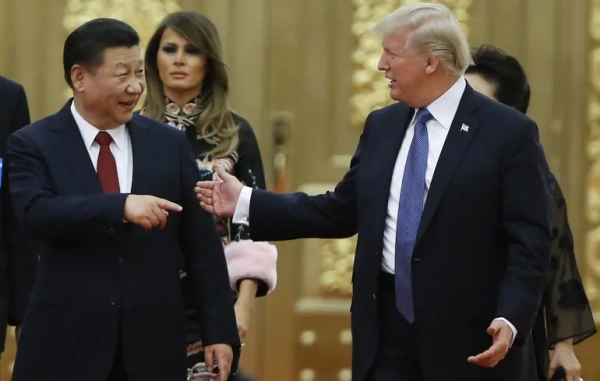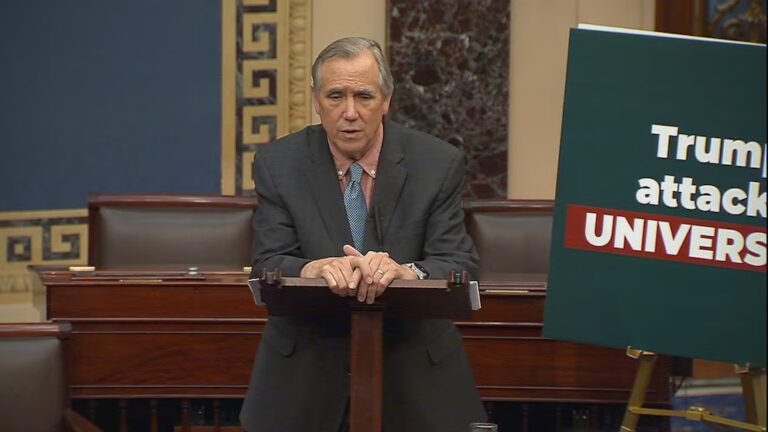
Lizzie Pannill Fletcher wants to talk about local Houston issues, not about the intra-Democratic party drama that’s been dogging her race in Texas’s 7th Congressional District.
Having finished in the top two of a crowded primary field in early March, Fletcher and Democratic opponent Laura Moser will face off in a May 22 runoff to determine which candidate will be up against Republican incumbent Rep. John Culberson. Fletcher is a longtime Houston attorney and first-time candidate who was spurred to run after President Donald Trump’s election in 2016. She is counting on her hometown credentials, track record as a Houston attorney, and local name recognition to win.
Culberson has been in office since 2001, and the 7th District is one Democrats are desperately hoping to flip in November. Fletcher has been campaigning on local issues, including Houston’s lack of transportation infrastructure and the need for flood mitigation in a city that was devastated by Hurricane Harvey.
“I was fortunate enough to live in a district that was going to be very competitive because John Culberson is my rep, and the election result showed all of us that he was very vulnerable,” Fletcher told me recently.
But the local race Fletcher has tried to run has nevertheless become the flashpoint for a larger intra-party party drama between the party’s establishment institutions and its progressive wing. A few months ago, in the middle of a crowded Democratic primary, the Democratic Congressional Campaign Committee (DCCC) released an opposition memo slamming Fletcher’s opponent Moser for past articles she’s written seemingly denigrating parts of Texas.
The unusual move to try to knock Moser out of the race elevated the congressional district’s national profile and helped Moser raise thousands of dollars in the process, making it into the runoff along with Fletcher. It’s worth noting that the DCCC has not yet added Fletcher to its Red to Blue list of top candidates (a recent email snafu saw her name added to the list, but was corrected minutes later).
Fletcher said she doesn’t think local voters have been paying attention to the DCCC drama, although she added she would like to be added to the list to receive the extra resources Red to Blue candidates receive.
“I do think it’s kind of a disproportionate amount of attention for the issues in the race, and I’d hate to see our race reduced to that issue because there’s so much good stuff going on here,” she said.
I spoke to Fletcher about the local issues impacting the district, whether the race has been impacted by the DCCC memo, and how to run as a Democrat in Texas. Our conversation has been edited for length and clarity.
Ella Nilsen
Some see John Culberson as a vulnerable candidate, and you say there are people in the district who are dissatisfied with his Tea Party politics — I’m wondering if you’re going to make a play for those Republican voters and if you think you can win them over?
Lizzie Pannill Fletcher
Yes. We are going to make a play for every voter in the district, no matter how they voted in the past. We are going to make a play for new voters. If we can get our message out to the voters, I think we can win a lot of people: first-time voters, independents, former Republicans.
I’ve been doing house parties a lot, and I can’t think of a night where someone hasn’t raised their hand and said, “I used to consider myself a Republican, or I consider myself an independent, but I’m so worried about Donald Trump and the state of the country, I can’t possibly think about voting Republican.”
Ella Nilsen
I obviously don’t know the Texas political landscape as well as you do, but I am wondering if to try to pick up Republican voters you feel you need to moderate your message?
Lizzie Pannill Fletcher
I really don’t think so because I think that, organically, people feel much more connected with the perspective that I have on the community. This is a district where Mitt Romney won by 20 points in 2012 and then Hillary Clinton won by 1.5 points. I think that is directly tied to Donald Trump and the Republican message.
Harris County is blue. We swept in 2008, 2012, and 2016, so people here are responsive to the Democratic message. I think the trick to unseating a nine-term Republican is about being able to get your message out.
Ella Nilsen
Before you get to the general, you have a primary runoff election coming up soon. How would you distinguish yourself from your opponent Laura Moser?
Lizzie Pannill Fletcher
What I have said consistently from the beginning, because we started with seven Democrats and now we’re down to two — is I really view my opponent as John Culberson, not any of the other Democrats. Obviously, there are two names on the ballot, but my focus is really on getting out my message about who I am. That’s what we’re really focused on is educating people on the work I have done and why I have good preparation for the job in front of me.
Ella Nilsen
I’m sure you’ve been asked this question many times — how do you feel the DCCC memo on Moser earlier on in the race impacted the race? Also, a couple weeks ago there was an email that went out with your name on the DCCC Red to Blue list that was then corrected a few minutes later. How has that impacted the race in general?
Lizzie Pannill Fletcher
You know, you are correct that you’re not the first person to ask that question, and I feel like it is a question that people ask that are kind outside of the community. I just think it’s interesting on a national narrative. In terms of the race, I don’t think it’s affecting a lot of voters.
That happened shortly before the election last time and we really didn’t hear about it at the doors or on the phones from people in the community. Even now at so many house parties and events, people want to talk about flooding, they want to talk about Donald Trump and standing up to Trump. So I don’t think it’s played as much of a role as it’s appeared from the outside, in terms of the race itself.
Ella Nilsen
Are you frustrated that it’s gotten this much national attention?
Lizzie Pannill Fletcher
I don’t know I’d say I’m frustrated that it’s got this much attention. I do think it’s kind of a disproportionate amount of attention for the issues in the race, and I’d hate to see our race reduced to that issue because there’s so much good stuff going on here.
We had seven candidates who all brought something to the table and I was really proud that out of that field I came in first, kind of in every different metric. I do think the real story here is that people in this community are organically standing up and getting engaged and involved. I do wish that would be the focus, there’s so much more going on that everybody could talk about.
Ella Nilsen
After the Red to Blue list email and subsequent correction, Moser has been painting this as you as the Democratic establishment candidate and her as the progressive, insurgent candidate, and she certainly has been fundraising off of this. Do you have any comment about that?
Lizzie Pannill Fletcher
Look, we’ve got to use what we can to get our message out to voters and I have heard and seen a little bit where I understand she’s fundraising off of it, and I think she has mentioned she’s raising money from all 50 states, and Guam, and that she’s running on that narrative.
I am running on a very different narrative. I am running a race about this district and this community. Of course, we want the national party to be supportive when we’re running against John Culberson.
Last week, the Congressional Leadership Fund announced they’re going to invest $2.5 million in Culberson’s race alone to try to keep the seat. So we’re going to need and want those resources here when we’re running in the general. When we write our fundraising emails, we’re proud to tell people that 80 percent of our money has come right from here in Houston. Almost 90 percent is from Texas in the runoff.
We have just been focused on building support here in our community and earning the trust of the voters, and that’s where our focus has been. I understand this is an angle and I understand that Laura’s using it as part of her narrative. It’s just not our narrative, it’s just not my fight.
Ella Nilsen
What do you think about the “blue wave hitting Texas” hype?
Lizzie Pannill Fletcher
I think that there’s great hope in Texas this year, across the board. Harris County is blue … and there has been so much work that has gone into turning out voters; there have been a lot of organizations working hard here for a decade. And I think what we’re seeing this year is going to be a payoff of so much work that people across this community have been doing for years.
To me, the big challenge is only three of Texas’s 36 congressional reps are women. And so we’re poised to make a giant change this year and, hopefully, increase by five and maybe more the number of women in our delegation. I’ve been as focused on that as I have been the overall wave.
Sourse: vox.com






